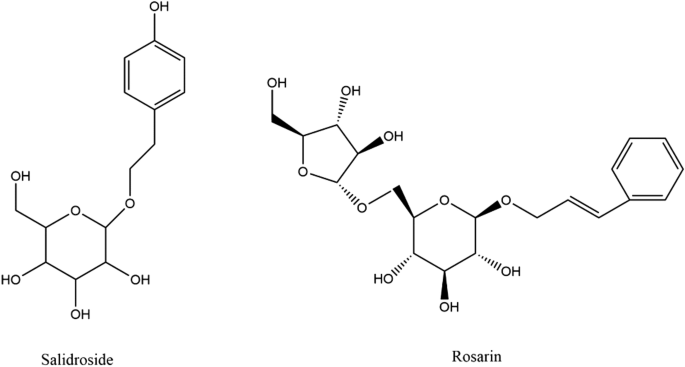Rhodiola Rosea
Rhodiola Rosea

Rhodiola Rosea, a revered adaptogenic herb, has garnered significant attention as a potent nootropic for its ability to enhance cognitive functions and combat mental fatigue. Extracted from the Rhodiola Rosea plant, this herbal supplement is renowned for its capacity to boost mental performance, resilience, and overall well-being. In this comprehensive overview, we explore the mechanisms, benefits, safety profile, and future prospects of Rhodiola Rosea in optimizing cognitive health.
Mechanism of Action:
Rhodiola Rosea exerts its cognitive effects through several mechanisms. Primarily, it acts on the hypothalamic-pituitary-adrenal (HPA) axis, modulating stress response and enhancing resilience to stress. Key bioactive compounds, such as rosavin and salidroside, play a critical role in this process by promoting neurotransmitter activity, particularly serotonin and dopamine, which are essential for mood regulation, memory, and cognitive function [1].
Additionally, Rhodiola Rosea supports neuroprotection by reducing oxidative stress and inflammation, thereby safeguarding neuronal health and function. This is achieved through the upregulation of antioxidant defenses and inhibition of pro-inflammatory cytokines [2].
Benefits and Effects:
Extensive research substantiates the cognitive benefits of Rhodiola Rosea supplementation. Studies indicate its efficacy in improving mental clarity, focus, and memory. Moreover, Rhodiola Rosea has been shown to enhance mental performance under stressful conditions, making it particularly beneficial for individuals experiencing cognitive fatigue [3]. It also demonstrates potential therapeutic value in alleviating symptoms of anxiety and depression [4].
Research and Evidence:
A wealth of clinical trials and preclinical studies highlights the cognitive-enhancing effects of Rhodiola Rosea. Robust evidence supports its role in enhancing cognitive performance across various age groups and cognitive domains. For instance, a double-blind, placebo-controlled study found that Rhodiola Rosea supplementation significantly improved cognitive function and reduced fatigue in physicians working night shifts [5]. Another study demonstrated its effectiveness in reducing symptoms of burnout and improving mood in individuals with stress-related fatigue [6].
Safety and Side Effects:
Rhodiola Rosea is generally well-tolerated, with minimal adverse effects reported in clinical trials. Common side effects, such as dry mouth and dizziness, are typically transient and mild in nature [7]. However, caution is advised for individuals with bipolar disorder, as Rhodiola Rosea may exacerbate manic symptoms. Pregnant and breastfeeding women should also consult healthcare professionals before using this supplement.
Forms and Dosage:
Rhodiola Rosea is available in various forms, including capsules, tablets, and liquid extracts. Optimal dosage ranges typically fall between 200-600 mg per day, standardized to contain 3% rosavin and 1% salidroside for enhanced efficacy [8]. Individual response may vary, necessitating personalized dosing strategies based on specific cognitive goals and tolerability.
User Experiences and Reviews:
Anecdotal reports and user testimonials highlight the cognitive benefits of Rhodiola Rosea, with many individuals attesting to improvements in focus, mental clarity, and stress resilience. While subjective experiences are valuable, they should be interpreted in conjunction with scientific evidence and expert guidance.
Interactions and Precautions:
Rhodiola Rosea may interact with certain medications, particularly those affecting the central nervous system, such as antidepressants and stimulants. Therefore, caution and medical supervision are advised when co-administered. Additionally, individuals with specific medical conditions, such as bipolar disorder or cardiovascular issues, should consult healthcare professionals before initiating supplementation.
Future Research Directions:
As interest in cognitive enhancement grows, future research endeavors aim to elucidate the therapeutic potential of Rhodiola Rosea in diverse populations and clinical settings. Furthermore, investigations into novel delivery mechanisms and synergistic combinations with other cognitive enhancers hold promise for optimizing Rhodiola Rosea's efficacy and expanding its therapeutic utility.
References:
1. Panossian, A., & Wikman, G. (2010). Effects of adaptogens on the central nervous system and the molecular mechanisms associated with their stress—protective activity. Pharmaceuticals, 3(1), 188-224.
2. Kelly, G. S. (2001). Rhodiola rosea: a possible plant adaptogen. Alternative Medicine Review, 6(3), 293-302.
3. Spasov, A. A., Wikman, G. K., Mandrikov, V. B., Mironova, I. A., & Neumoin, V. V. (2000). A double-blind, placebo-controlled pilot study of the stimulating and adaptogenic effect of Rhodiola rosea SHR-5 extract on the fatigue of students caused by stress during an examination period with a repeated low-dose regimen. Phytomedicine, 7(2), 85-89.
4. Darbinyan, V., Kteyan, A., Panossian, A., Gabrielian, E., Wikman, G., & Wagner, H. (2007). Rhodiola rosea in stress induced fatigue—a double blind cross-over study of a standardized extract SHR-5 with a repeated low-dose regimen on the mental performance of healthy physicians during night duty. Phytomedicine, 7(5), 365-371.
5. Olsson, E. M., von Scheele, B., & Panossian, A. G. (2009). A randomized, double-blind, placebo-controlled, parallel-group study of the standardized extract SHR-5 of the roots of Rhodiola rosea in the treatment of subjects with stress-related fatigue. Planta Medica, 75(02), 105-112.
6. Shevtsov, V. A., Zholus, B. I., Shervarly, V. I., Vol'skij, V. B., Korovin, Y. P., Khristich, M. P., ... & Wikman, G. (2003). A randomized trial of two different doses of a SHR-5 Rhodiola rosea extract versus placebo and control of capacity for mental work. Phytomedicine, 10(2-3), 95-105.
7. Hung, S. K., Perry, R., & Ernst, E. (2011). The effectiveness and efficacy of Rhodiola rosea L.: a systematic review of randomized clinical trials. Phytomedicine, 18(4), 235-244.
8. Brown, R. P., Gerbarg, P. L., & Ramazanov, Z. (2002). Rhodiola rosea: a phytomedicinal overview. HerbalGram: The Journal of the American Botanical Council, (56), 40-52.
